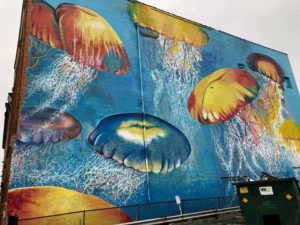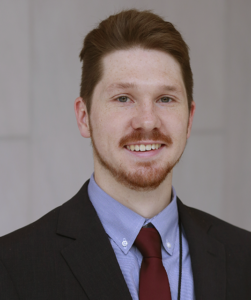December 1, 2020
New Jersey: Using the Arts to Communicate about Coastal Flooding

“Close Encounters,” a 3-D mural by Charles Barbin, was created as part of 48 Blocks Atlantic City in 2018. Photo by Michelle Baxter-Schaffer, New Jersey State Council on the Arts
The New Jersey State Council on the Arts (NJSCA) has partnered with the New Jersey Coastal Management Program and the Jacques Cousteau National Estuarine Research Reserve to develop a new program, Risk Communication: A Campaign for Coastal New Jersey. Acknowledging the difficulty of effectively communicating about coastal flooding across distinct populations, this program will empower local decision makers to portray environmental risk in terms that are salient to their community. The arts will play a large role in this new campaign, with NJSCA overseeing a community based arts grant program to develop coastal art installations.
The new grant program will select up to four community based organizations (CBOs) and four artists to create art installations. The CBOs and artists will work together to ensure that the installations address coastal hazards and facilitate a cross-cultural public awareness that engenders individual and community agency. Grants will award up to $12,500 to the CBO, of which $7,000 must be paid to the artist for project development, materials and presentation of the installation. Importantly, this innovative grant program will provide a model for communicating about environmental risks to communities across New Jersey and will inform a larger strategy to develop risk communication materials, a social media campaign and communication training. For more information about the partnership, contact NJSCA Director of Artist Services Danielle Bursk.
In this Issue
From the President and CEO
State to State
- Massachusetts: CultureRx Initiative
- New Jersey: Using the Arts to Communicate about Coastal Flooding
- Tennessee: COVID-19 Arts Resilience Grant
Legislative Update
The Research Digest
Announcements and Resources
More Notes from NASAA
SubscribeSubscribe
×
To receive information regarding updates to our newslettter. Please fill out the form below.

